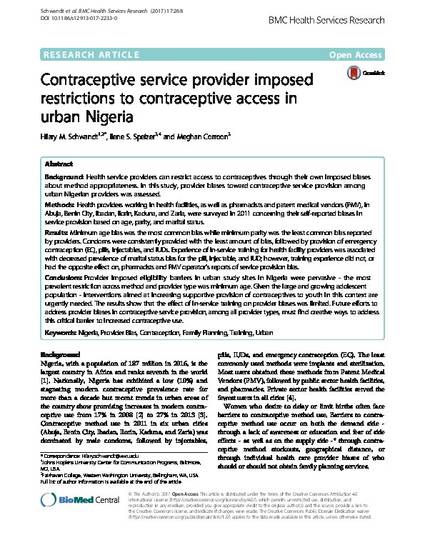
- Nigeria,
- Provider Bias,
- Contraception,
- Family Planning,
- Training,
- Urban
Background: Health service providers can restrict access to contraceptives through their own imposed biases about method appropriateness. In this study, provider biases toward contraceptive service provision among urban Nigerian providers was assessed.
Methods: Health providers working in health facilities, as well as pharmacists and patent medical vendors (PMV), in Abuja, Benin City, Ibadan, Ilorin, Kaduna, and Zaria, were surveyed in 2011 concerning their self-reported biases in service provision based on age, parity, and marital status.
Results: Minimum age bias was the most common bias while minimum parity was the least common bias reported by providers. Condoms were consistently provided with the least amount of bias, followed by provision of emergency contraception (EC), pills, injectables, and IUDs. Experience of in-service training for health facility providers was associated with decreased prevalence of marital status bias for the pill, injectable, and IUD; however, training experience did not, or had the opposite effect on, pharmacists and PMV operator’s reports of service provision bias.
Conclusions: Provider imposed eligibility barriers in urban study sites in Nigeria were pervasive - the most prevalent restriction across method and provider type was minimum age. Given the large and growing adolescent population - interventions aimed at increasing supportive provision of contraceptives to youth in this context are urgently needed. The results show that the effect of in-service training on provider biases was limited. Future efforts to address provider biases in contraceptive service provision, among all provider types, must find creative ways to address this critical barrier to increased contraceptive use.
